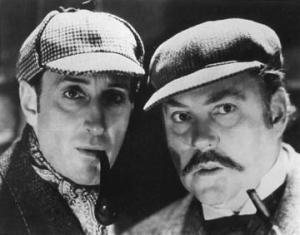Please welcome guest Lise McClendon and her thoughts on the power of the sidekick in books.
Do you have friends? Of course you do. Friendships make everyday life, which often ranges from routine to downright dull, more fun, more manageable, and more understandable. Even more than family, friends are there for you, to laugh and cry and buy you cake. 
You know how some friends teach you to be a better friend? They somehow know that being a friend is a skill and they want you to be happy and friend-full. These people, extroverts probably, are experts in friend-making from preschool on. Others, the introverts, the socially awkward, and, yes, many writers, must learn how to give, how to listen, how to share, how to celebrate the successes of others, and all the things that make a person a good friend. It doesn’t matter if you’re a natural or you have to work at it. Just fulfilling that need for friends is where it’s at. One of the joys of my life is figuring this friend thing out, and the incredible friends I’ve made over the years.
Characters in novels need friends, too. They may not think they do because they are Shane-like, the solitary hero who wanders into town and makes everything right. But scratch the surface of any good protagonist and you’ll find deep relationships. Maybe they aren’t strictly in the friend category; maybe they’re co-workers, husbands or ex-wives, dead brothers or high school teammates. But no one is truly alone. And when building a character and her past it’s important to remember that while she may go on her quest alone, she brings with her all her friends, at least in her head. Because a person, and a character, is the sum of all their experiences, and their relationships, good and bad, are a key element in that. Along the way she may make new friends, mentors and guides in Quest-speak, and even enemies can become helpers and friends.
The ultimate friend in fiction is the sidekick. The second man, the understudy. Their number is legendary, from Sherlock’s Dr. Watson and Crusoe’s Friday, to Don Quixote’s Sancho Panza and Tom Sawyer’s Huck Finn. Where would Harry Potter be without Ron and Hermione, or Spenser without Hawk? How could Dorothy have gotten home from Oz without her three sidekicks?
The sidekick is a powerful figure in stories because he has so many vital roles. He contrasts with the protagonist, playing up the good qualities of the hero. The two of them can banter, discuss, and give information to the reader. The sidekick can be wilder, more carefree, rule-breaking or even criminal, moving the plot in ways that the hero in his goodness and single-mindedness can’t. But most importantly the sidekick makes the hero or heroine seem more human. The protagonist can appear bigger than life, a person without flaws, possessing superhuman strength or intelligence or both. The friend is the person who calls them on their crap, who brings them back to Earth, who reminds the reader that if the hero can have one loyal friend, they are maybe, just a little, like you and me.
Even if you don’t give your hero a true sidekick, try to interject a friend somewhere. It makes your character more alive, more human, more connected to their world. In my new thriller, PLAN X, my heroine, Cody Byrne, is a cop with a little PTSD problem she’s hiding from everyone. Everyone, that is, except her best friend. Her friend makes one small appearance in the novel but Cody thinks about her often. It was important that somebody would know her so well that she can’t keep secrets from them.
Cody’s family is spread around the globe, her brother was killed in Afghanistan, and she’s both attracted to and afraid of relationships with men. So her friend’s loyalty and insight is one bright spot in her psyche. Cody ends up in London, tracking down the identity of the Shakespeare professor who’s blown up in Chapter One. There she meets her real sidekick, friend, and helper, the legal attaché at the US Embassy. But that’s halfway through the novel. Back home she needs a connection with somebody: a friend. Because we all need friends.
Friends keep it real, both in life and in fiction. Who are your favorite sidekicks in fiction?
Lise McClendon is the author [as Rory Tate] of the new thriller, PLAN X. She has written two mysteries series and several stand-alone novels. Her website is www.lisemcclendon.com. You can find her on Facebook and follow her on Twitter as @LiseMcClendon. She gives a shout-out to her sidekicks including (but not limited to) Sherri, Emilie, Angie, Chris, Bess, Debby, Katy, Diane, Rena, Cindy, Susan, Helen, Melody, and Patricia. Love you, friends.











Thank you for hosting me, Marni!
LikeLike
Good luck!
LikeLike
Reblogged this on Lise McClendon and commented:
I’m blogging today over at Marni Graff’s Auntie M Writes. Friends, sidekicks, and the power of relationships in fiction and life.
LikeLike
[…] that’s why I wrote the piece about Friends and Sidekicks over Auntie M Writes Blog this week. Friends are so important in life. Their meaning can’t be overestimated. I often […]
LikeLike
[…] suggestions on how to develop your character’s Achilles’ heel. Lise McClendon discusses the power of the sidekick, and Adrienne deWolfe offers 10 tips for writing a bad guy readers love to hate. Jody Hedlund […]
LikeLike